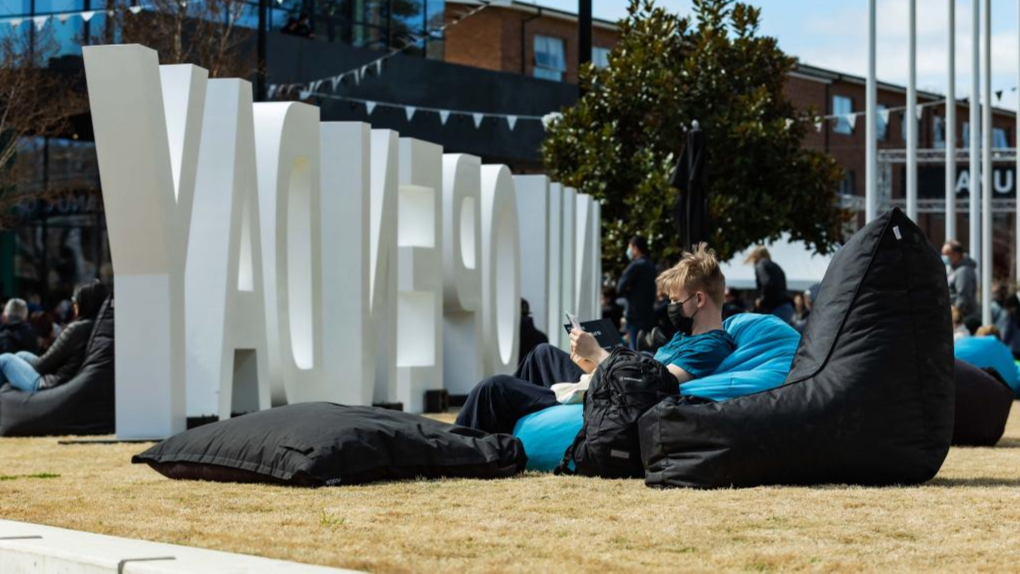
The US government’s funding freeze on research grants will have a devastating impact on life-saving research being undertaken at Australia’s leading research-intensive universities.
The top eight Australian universities, known as the Group of Eight (Go8), are the most affected as they carry out 70 percent of the country’s university research.
The rapid shift in United States’ policy will impact critical research into health and medicine in Australia, and potentially defense and national security.
READ MORE: Aussie top universities say US funding at risk due to Trump crackdown
US research funding at Australian universities, mainly with the Go8, totals A$400 million ($252.3 million) annually.
To put this into perspective the Australian Research Council contributes around A$700 million.
One Go8 member affected is the Australian National University (ANU) in Canberra.
In a statement to China Daily, the university said, “ANU has 16 funded US government research contracts which are worth a total of A$9.3 million.
“The university can confirm it has received a letter from the US government indicating an intent to terminate funding related to one research project.”
The US is the single largest collaborative research partner among the Go8 universities globally.
So far, the US has suspended or terminated research grants with six of the eight universities in line with changes introduced by the Trump administration.
“Subsequently, some Go8 members have received a ‘show cause’ notification to justify ongoing funding, seeking a response within 48 hours.
“A number of questions relate to the priorities of the Trump government and seek advice on research collaboration with international partners,” the Go8 said in a statement.
The questionnaires ask 36 questions on a wide range of topics including drugs, US government transgender policies, and Christianity. They include:
Can you confirm that your organization does not work with entities associated with communist, socialist, or totalitarian parties, or any party that espouses anti-American beliefs?
Can you confirm that your organization has not received any funding from the PRC (including Confucius Institutes and/or partnered with Chinese state or non-state actors), Russia, Cuba, or Iran?
Can you confirm this is not a climate or "environmental justice" project or include such elements?
Does this project directly contribute to limiting illegal immigration or strengthening US border security?
The Go8 has asked the Australian government to intervene and is seeking urgent guidance from the US government, including an extension of time to appropriately address and respond to the requirements. But with a federal election expected to be called in Australia any day, the government’s priorities will be elsewhere.
The chief executive of the Go8 Vicki Thomson told China Daily, “The Group of Eight universities are deeply engaged in collaborative activities with the US, especially through our defense initiatives and the AUKUS alliance.
“We engage in numerous projects funded by US funding agencies. For example, Go8 universities collectively received around $161.6 million in grants from the National Institutes of Health (NIH) during Financial Years 2020-2024, representing 88 per cent of all NIH funding to Australian universities during that period.
“Coming on the back of changes to Australia’s international education policy, which props up our university research effort, we are at a critical juncture.”
She said, “Australia must double down on getting a seat at the table to access the world’s largest research fund, Horizon Europe. Associate membership to Horizon Europe - the EU’s €95.5 billion ($103 billion) flagship research and innovation program – will not only deliver important economic and social benefits, but it will also strengthen the Australian-European partnership.”
The Australian Academy of Science, an independent organization of distinguished Australian scientists, has called for an emergency meeting with the National Science and Technology Council (NSTC).
Professor Chennupati Jagadish president of the Academy said in a statement to China Daily on March 21 that the US is a vitally important alliance partner with whom “Australia should and must work collaboratively, but a partner that is unpredictable”.
READ MORE: Australian universities: Cap on foreign students could cost 14,000 jobs
“We rely on US-funded research and infrastructure to share information on vaccines so all Australians can benefit from a flu shot next winter; so the Bureau of Meteorology can monitor and predict adverse weather events like cyclone Alfred that just battered our shores; so we can access earth observation data to enable GPS functions and communications; and so we can advance our strategic defense capability that gives us the best chance of staying safe in a technologically advanced world,” he said.
Jagadish said Prime Minister Anthony Albanese should convene a special emergency meeting of the NSTC to “comprehensively assess” the extent of Australia’s exposure to US R&D investment in Australia, “so proactive risk mitigation strategies can be devised”.
“Taking a wait-and-see approach to the management of Australia’s national strategic R&D capability is dangerous and the consequences of inaction have profound consequences for Australians’ way of life,” he added.
Contact the writer at karlwilson@chinadailyapac.com


